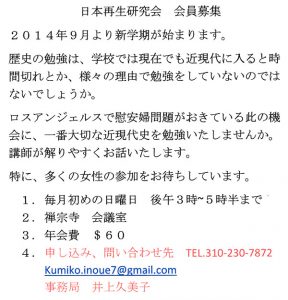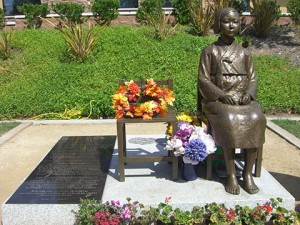Nazi War Crimes and Japanese Imperial Government Records Interagency Working Group Report (IWG Report), published in September 2007, is the final product of the Interagency Working Group within the U.S. government established by the Nazi War Crimes Disclosure Act of 1998 and expanded by Japanese Imperial Government Disclosure Act of 2001. The IWG reviewed and declassified 8.5 million pages of formerly classified documents from various branches of the government, about 140,000 pages of which related to the Pacific Theatre (i.e. documents about the War with Japan).
Comfort women denier Michael Yon is credited with calling attention to the report, which found little new documentary evidence on Japanese military comfort women system. A notable exception, which Yon fails to mention, is a report by a U.S. informant who “attested to the establishment by the Japanese army of occupation in Malaysia of ‘licensed public comfort houses,’ a practice which did not prevent abuse and rape of Malaysian women.”
That said, the IWG acknowledges that “while the ‘comfort women’ issue is of great current importance, the U.S. government did not systematically collect or create records related to the topic during or after the war. As a consequence, there are very few documents pertaining to the topic in the archives.” The IWG also points out that a large portion of documents pertaining to the Pacific Theatre had already been declassified decades ago, some of which document the Japanese military comfort women system, and were not under the purview of the IWG.
While Yon and other comfort women deniers argue that the IWG’s failure to identify new incriminating evidences “proves” that there was no wrongdoings on the part of Japanese military, the U.S. Congressional Research Service published its own report in April 2007 that cite previously available documents in support of the H.Res.121 calling on Japan to take responsibility for the treatment of comfort women during the WWII. In addition, staff at the National Archives and Record Administration (NARA) do not question that Japanese military comfort women system was a form of sexual slavery, as evidenced by the phrase “the Japanese military used sex slaves, or ‘comfort women,’ during World War II.”
Link: Final Report of the IWG
Link: Researching Japanese War Crimes: Introductory Essays


